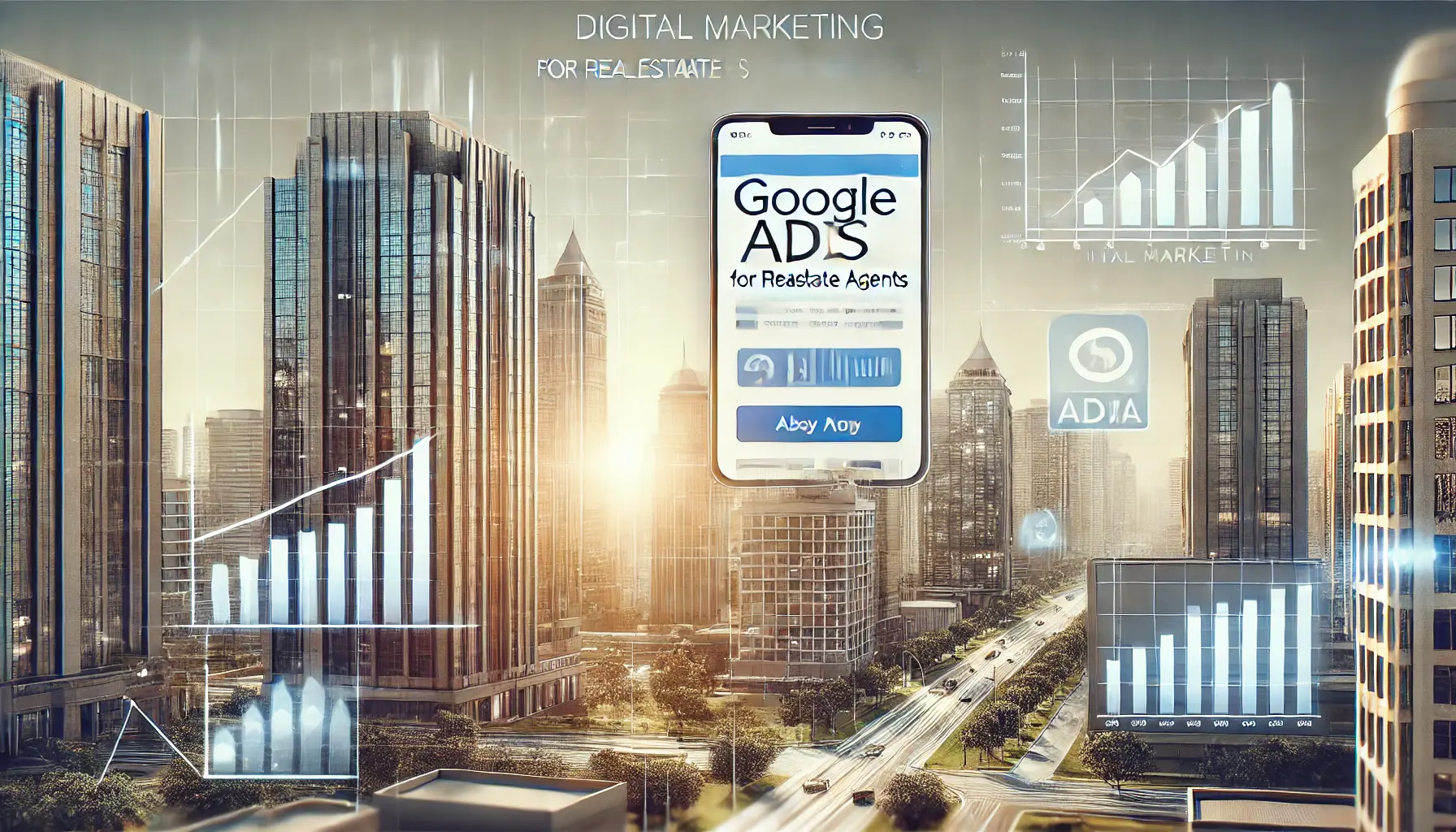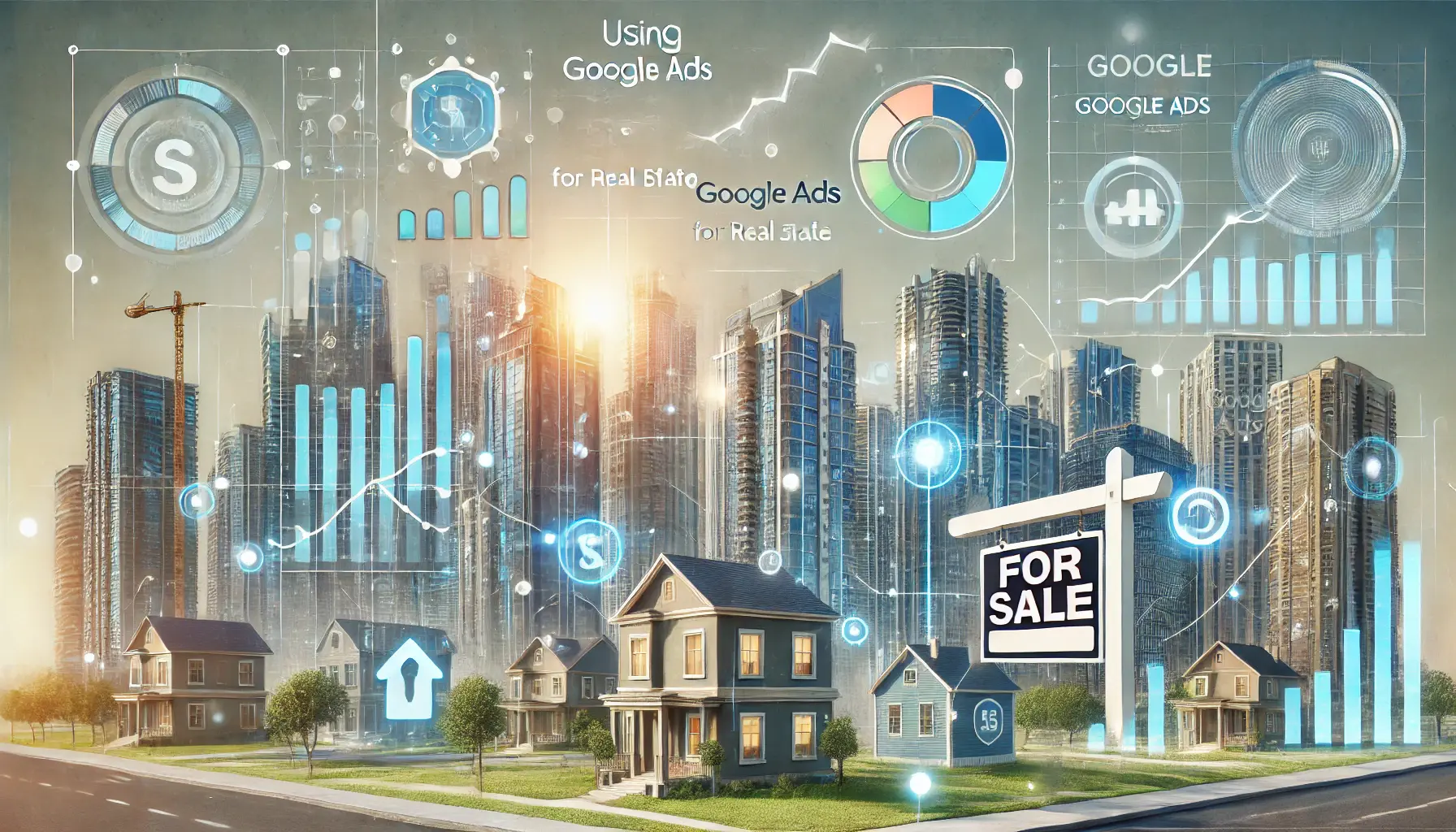In today’s digital age, the real estate industry is evolving rapidly, with social media playing a pivotal role in shaping the landscape of real estate marketing.
The integration of social media into real estate SEO strategies has become an indispensable tool for agents and agencies aiming to enhance their online visibility and connect with potential clients.
This article delves into the significance of social media integration in real estate SEO, offering insights into how this powerful combination can drive success in the competitive real estate market.
The fusion of social media and SEO presents a unique opportunity for real estate professionals to amplify their reach, engage with a broader audience, and ultimately, drive more sales.
By leveraging social media platforms, real estate agents can showcase properties, share market insights, and build a strong brand presence, all of which contribute to a robust SEO strategy.
This article explores the various facets of social media integration in real estate SEO, providing valuable tips and strategies for real estate professionals looking to maximize their online impact.
- The Importance of Social Media in Real Estate SEO
- Strategies for Effective Social Media Integration
- Maximizing SEO Through Social Media Platforms
- Link Building Through Social Media Engagement
- Tracking and Analyzing Social Media Impact on SEO
- Future Trends in Social Media and SEO for Real Estate
- Optimizing Social Media Profiles for SEO
- Conclusion: Harnessing the Power of Social Media Integration in Real Estate SEO
- Social Media Integration in Real Estate SEO FAQs
The Importance of Social Media in Real Estate SEO
Enhancing Online Visibility
Integrating social media into a real estate SEO strategy significantly boosts online visibility.
Social media platforms serve as additional channels to promote listings, share content, and engage with potential buyers and sellers.
By consistently posting high-quality content on social media, real estate professionals can increase their website’s traffic, as these platforms facilitate easy sharing and wider dissemination of information.
Moreover, social media profiles and posts often appear in search engine results, further enhancing a brand’s online presence.
This dual visibility, both on social platforms and search engines, creates a comprehensive digital footprint that attracts more potential clients.
Building Brand Authority and Trust
Trust and authority are crucial in the real estate industry.
Social media provides an excellent platform for real estate agents to establish themselves as industry experts.
Through regular posts that offer market insights, buying tips, and property advice, professionals can build a reputation for knowledge and reliability.
This not only attracts followers but also improves search engine rankings as search engines favor content from reputable sources.
Engaging directly with followers through comments, messages, and live sessions fosters a sense of community and trust.
This direct interaction, characteristic of social media, cannot be easily replicated through traditional SEO tactics but is instrumental in building a loyal client base.
Integrating social media into your real estate SEO strategy is key to enhancing online visibility, building brand authority, and establishing trust with potential clients.
Strategies for Effective Social Media Integration
Incorporating social media into your real estate SEO strategy requires a thoughtful approach to ensure it complements your overall marketing goals.
Here are several strategies that can help real estate professionals effectively integrate social media into their SEO efforts, driving more engagement and improving search engine rankings.
Content Creation and Optimization
Creating engaging and valuable content is at the heart of successful social media integration.
Real estate professionals should focus on:
- High-quality images and videos of listings to capture attention.
- Informative blog posts about the real estate market, home improvement tips, and buying or selling advice to provide value to followers.
- Interactive content such as polls, quizzes, and Q&A sessions to engage the audience.
Optimizing content for SEO by including relevant keywords, hashtags, and geo-tags increases visibility both on social media platforms and search engines.
User Engagement and Interaction
Engaging with users on social media is crucial for building relationships and enhancing SEO.
Real estate agents should:
- Respond promptly to comments, messages, and inquiries to foster a responsive brand image.
- Encourage user-generated content, such as reviews or testimonials, which can be shared across platforms.
- Use social media analytics tools to monitor engagement levels and adjust strategies accordingly.
Consistency and Branding
Maintaining a consistent posting schedule and cohesive branding across all social media platforms is essential for recognition and recall.
This consistency helps in:
- Establishing a strong brand identity that resonates with the target audience.
- Improving brand recall, making it easier for potential clients to remember and search for your business online.
- Enhancing the overall user experience by providing a unified brand message.
Leveraging social media for real estate SEO is not just about posting content; it’s about creating a meaningful connection with your audience through consistent, engaging, and optimized content.
Maximizing SEO Through Social Media Platforms
Each social media platform offers unique advantages for real estate professionals looking to enhance their SEO.
Understanding how to tailor your strategy to each platform can significantly impact your online visibility and lead generation efforts.
Here’s how to maximize SEO benefits across different social media channels:
Facebook: The Community Builder
- Utilize Facebook Pages for your business to share listings, client testimonials, and informative articles.
- Engage with local community groups or create your own to establish a presence as a local real estate authority.
- Invest in Facebook Ads targeting specific demographics and interests to drive targeted traffic to your website.
Instagram: The Visual Showcase
- Use high-quality photos and videos to highlight properties, behind-the-scenes looks, and client testimonials.
- Incorporate relevant hashtags to increase the discoverability of your posts.
- Utilize Instagram Stories and Reels for more casual, engaging content that can drive followers to your website.
LinkedIn: The Professional Network
- Share industry insights, market trends, and professional achievements to build credibility.
- Participate in LinkedIn groups related to real estate to network with professionals and potential clients.
- Use LinkedIn Articles to publish in-depth content that showcases your expertise and drives traffic to your site.
Twitter: The Conversation Starter
- Share timely updates, news, and quick tips to stay top of mind with your followers.
- Engage in conversations with hashtags relevant to real estate to increase your visibility.
- Utilize Twitter Polls to gather insights and engage with your audience on topics related to real estate.
TikTok and YouTube: The Engaging Storytellers
- Create engaging video content that showcases properties, offers tips, and provides market insights.
- Use SEO-friendly titles, descriptions, and tags to improve the visibility of your videos.
- Encourage viewers to visit your website for more information, driving direct traffic from these platforms.
Each social media platform requires a tailored approach to effectively contribute to your real estate SEO strategy. By leveraging the unique features of each platform, you can enhance your online visibility and attract more potential clients.
Link Building Through Social Media Engagement
Link building is a critical component of SEO that can be effectively bolstered through strategic social media engagement.
In the realm of real estate, where competition is fierce, leveraging social media for link building can set you apart and significantly enhance your SEO performance.
Here’s how to use social media engagement for effective link building:
Encourage Sharing of Your Content
Creating shareable content is the first step in leveraging social media for link building.
High-quality, informative, and visually appealing posts about listings, market insights, or home improvement tips can encourage your followers to share your content on their own profiles.
Each share extends your reach and increases the likelihood of generating backlinks to your website as more people discover and reference your content.
Collaborate with Influencers and Industry Leaders
Partnering with influencers and industry leaders in the real estate sector can significantly boost your link-building efforts.
Collaborative posts, guest blogs, and shared live events are excellent ways to tap into their follower base.
These collaborations often result in cross-linking on social media and their websites, thereby enhancing your website’s backlink profile and SEO.
Utilize Social Media to Promote Your Blog Content
Your blog is a goldmine for valuable content that can attract backlinks.
Use your social media profiles to promote your blog posts, encouraging followers to visit your website for more information.
Highlight key points or offer teasers on social media to pique interest and drive traffic.
This not only increases direct traffic but also improves the chances of other websites linking to your detailed blog posts as a resource.
Engage in Community Discussions
Active participation in social media discussions related to real estate can position you as an authority in the field.
Use platforms like LinkedIn and Facebook to join real estate groups or forums.
By providing insightful comments and sharing relevant content, you can drive interest to your profile and website, encouraging organic link building as others reference your contributions in their content.
Social media engagement is a powerful tool for link building in real estate SEO. By creating shareable content, collaborating with influencers, promoting blog posts, and engaging in community discussions, you can enhance your website’s backlink profile and SEO performance.
Tracking and Analyzing Social Media Impact on SEO
To truly harness the power of social media integration in real estate SEO, it’s crucial to track and analyze the impact of your social media activities.
Understanding which strategies are driving traffic, generating leads, and contributing to your SEO goals allows you to refine your approach for maximum effectiveness.
Here’s how to effectively track and analyze your social media impact:
Utilize Analytics Tools
Both social media platforms and SEO tools offer analytics features that provide insights into your performance.
For social media, tools like Facebook Insights, Instagram Analytics, and Twitter Analytics can show engagement rates, reach, and how social traffic is navigating to your website.
Similarly, Google Analytics offers a comprehensive view of how social media traffic behaves on your site, including session duration, bounce rate, and conversions.
Monitor Website Traffic from Social Media
Tracking the amount of traffic coming to your real estate website from social media platforms is essential.
Use Google Analytics to set up goals and monitor conversions from social media referrals.
Pay attention to which platforms are driving the most traffic and which types of content are most effective at encouraging clicks to your website.
Analyze Engagement Metrics
Engagement metrics such as likes, shares, comments, and direct messages can provide insights into how well your content resonates with your audience.
High engagement rates often correlate with increased website traffic and improved SEO, as they indicate valuable, share-worthy content that may generate backlinks.
Review SEO Rankings and Backlinks
Use SEO tools to monitor changes in your search engine rankings and the growth of your backlink profile.
Tools like Ahrefs, SEMrush, and Moz can show how your social media efforts are influencing your SEO performance over time.
Look for correlations between increased social media activity and improvements in SEO metrics.
- Set specific, measurable goals for your social media activities and track progress towards these goals.
- Regularly review your analytics to understand the ROI of your social media efforts on your SEO performance.
- Adjust your social media strategy based on data-driven insights to continuously improve your SEO results.
Effective tracking and analysis are key to understanding the impact of social media on real estate SEO. By leveraging analytics tools, monitoring website traffic, analyzing engagement metrics, and reviewing SEO rankings, you can optimize your social media strategy for better SEO outcomes.
Future Trends in Social Media and SEO for Real Estate
The landscape of real estate marketing is continually evolving, with new trends emerging in social media and SEO that can significantly impact how real estate professionals connect with their audience.
Staying ahead of these trends is crucial for maintaining a competitive edge in the digital space.
Here are some future trends in social media and SEO for real estate that professionals should be aware of:
Increased Use of Video Content
Video content has been gaining traction across social media platforms, and this trend is expected to continue growing.
For real estate, this means leveraging video tours, live Q&A sessions, and video testimonials to engage potential clients.
Platforms like Instagram Reels, TikTok, and YouTube offer vast opportunities for creative video marketing that can enhance both social media engagement and SEO by keeping visitors longer on your website and improving bounce rates.
Virtual and Augmented Reality Experiences
As technology advances, virtual and augmented reality (VR and AR) are becoming more accessible tools for real estate marketing.
These technologies offer immersive experiences that allow potential buyers to explore properties virtually.
Incorporating VR and AR experiences in your social media and website can not only set you apart from competitors but also improve your website’s engagement metrics, positively impacting your SEO.
Personalization and AI-driven Content
Personalization is becoming increasingly important in digital marketing.
AI-driven tools and algorithms can help tailor your social media content and ads to the preferences of your target audience, resulting in higher engagement rates and more effective lead generation.
Additionally, personalizing content on your website based on visitor behavior can improve user experience and SEO performance.
Focus on Local SEO
For real estate professionals, local SEO is a critical component of their digital marketing strategy.
Optimizing your social media content and website for local search terms and using location-based hashtags can help you reach potential clients in your area.
Google My Business listings and local citations also play a significant role in enhancing your local SEO efforts.
- Stay updated on the latest social media features and SEO best practices to leverage them effectively.
- Experiment with new technologies like VR and AR to offer unique experiences to your audience.
- Invest in AI and personalization to make your marketing efforts more targeted and efficient.
- Enhance your local SEO strategy to ensure you’re visible to potential clients in your area.
Embracing future trends in social media and SEO can help real estate professionals stay ahead in a competitive market. By focusing on video content, VR/AR experiences, personalization, and local SEO, you can improve your online visibility and connect with your audience more effectively.
Optimizing Social Media Profiles for SEO
For real estate professionals, the optimization of social media profiles is a critical step in enhancing their overall SEO strategy.
A well-optimized social media profile not only helps in improving visibility on social platforms but also contributes to your brand’s SEO performance.
Here are key strategies for optimizing your social media profiles for SEO:
Complete and Accurate Profile Information
Ensure that all your social media profiles are fully completed with accurate and up-to-date information.
This includes your business name, address, phone number, and a link to your website.
Consistent NAP (Name, Address, Phone number) information across all platforms helps improve your local SEO and makes it easier for potential clients to find you.
Keyword Optimization
Incorporate relevant keywords into your social media profiles, especially in the bio or about sections.
Use keywords that potential clients might use when searching for real estate services in your area.
However, ensure the keywords fit naturally into your profile description to maintain readability and engagement.
High-Quality Visuals
Use high-quality, professional images for your profile and cover photos.
Visuals play a crucial role in attracting attention and making a strong first impression.
Consider including images of your team, properties you’ve sold, or local landmarks to connect with your local audience.
Active Content Sharing
Regularly share valuable content on your social media profiles, including listings, blog posts, market analyses, and customer testimonials.
Active content sharing not only engages your followers but also drives traffic to your website, contributing to your site’s SEO.
Engagement and Interaction
Actively engage with your followers by responding to comments, messages, and reviews.
Engagement increases your profile’s visibility and encourages more interaction, which can indirectly boost your SEO by increasing traffic to your linked website.
- Utilize social media tools and features, such as hashtags on Instagram and Twitter, to increase the discoverability of your posts.
- Encourage user-generated content, such as reviews and testimonials, which can be shared on your profile to enhance credibility and trust.
- Monitor your social media analytics to understand which content performs best and refine your strategy accordingly.
Optimizing your social media profiles is a foundational step in leveraging social media for real estate SEO. By ensuring complete and accurate profile information, incorporating relevant keywords, using high-quality visuals, actively sharing content, and engaging with your audience, you can enhance your online visibility and attract more potential clients.
Conclusion: Harnessing the Power of Social Media Integration in Real Estate SEO
The integration of social media into real estate SEO is not just a trend but a strategic necessity in today’s digital marketing landscape.
As we’ve explored, social media offers unparalleled opportunities for real estate professionals to enhance their online visibility, engage with a wider audience, and ultimately drive more business.
The synergy between social media and SEO can significantly amplify your marketing efforts, making your real estate business more accessible and appealing to potential clients.
Key Takeaways for Real Estate Professionals
Throughout this article, we’ve delved into various strategies and insights that underscore the importance of social media integration in real estate SEO.
Here are some key takeaways:
- Creating and sharing high-quality, engaging content across social media platforms can boost your SEO by driving traffic to your website and increasing your online visibility.
- Engaging with your audience through comments, live sessions, and user-generated content fosters a sense of community and trust, which is crucial for building long-term client relationships.
- Optimizing your social media profiles with relevant keywords, high-quality visuals, and consistent NAP information enhances your local SEO and makes it easier for potential clients to find you.
- Staying abreast of emerging trends, such as video content, VR/AR experiences, and AI-driven personalization, can keep your real estate marketing strategies ahead of the curve and more appealing to modern clients.
Embracing the Future of Real Estate Marketing
As the real estate industry continues to evolve, so too must the marketing strategies of real estate professionals.
The integration of social media into real estate SEO is a testament to the dynamic nature of the industry and the ongoing need for professionals to adapt and innovate.
By embracing social media as a key component of your SEO strategy, you can not only improve your online presence but also create more meaningful connections with your audience.
In conclusion, the integration of social media in real estate SEO is a powerful strategy that can lead to significant growth and success in the real estate market.
By leveraging the tips and strategies outlined in this article, real estate professionals can enhance their digital marketing efforts, reach a broader audience, and achieve their business goals.
The future of real estate marketing is digital, and social media integration is at the forefront of this evolution.
Want your website to top Google search rankings? Leave the SEO to our professional agency!
Social Media Integration in Real Estate SEO FAQs
Explore frequently asked questions about integrating social media into your real estate SEO strategy to enhance your online presence and connect with more potential clients.
It’s the strategic use of social media platforms to boost a real estate website’s search engine rankings, increase visibility, and engage potential clients.
Social media enhances online visibility, drives traffic to your website, and helps build brand authority, contributing positively to your SEO efforts.
By increasing website traffic through shared content, fostering engagement, and generating backlinks as users share your content on their networks.
Facebook, Instagram, LinkedIn, Twitter, and YouTube are highly effective for real estate professionals looking to enhance their SEO through social media.
Consistency is key. Aim for daily posts to keep your audience engaged and drive continuous traffic to your website.
Yes, well-optimized social media profiles and content can appear in search engine results, increasing your overall online visibility.
Incorporate relevant keywords, use high-quality images and videos, and ensure your content provides value to your audience for better SEO impact.
Engagement signals like likes, shares, and comments can indirectly boost your SEO by demonstrating content value and increasing website traffic.













